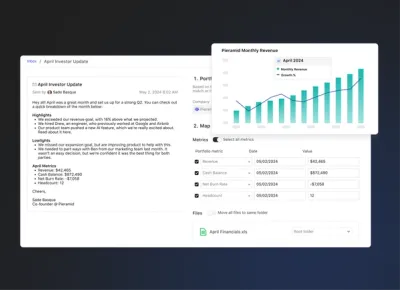
5 Insurance Policies You Should Understand Before Securing Your Next Funding Round

While you’re busy launching your startup and talking with investors, insurance might not be high on your priority list. But as you start planning to raise your next round, keep in mind that commercial insurance will most likely be a requirement of securing venture funding. Not having insurance can even slow down funding, so it’s wise to get the coverage you need ahead of time to avoid closing new rounds.
Venture capital firms often require certain policies to help mitigate the risk associated with investing in your startup. Here we’ll explain five key policies you should understand to help make your next funding round as smooth and seamless as possible.
Directors & Officers (D&O) Insurance
D&O insurance will likely be the first policy you need to have in place to secure if you’re raising money from investors. D&O covers you, the company, and your board of directors from a broad array of claims associated with wrongdoing that results from managing the company. Some examples include:
- Theft of trade secrets
- Misrepresentation that results in a loss for investors
- Breach of fiduciary duty
D&O has three main coverage areas:
- Side A: Covers individual insureds not indemnified by the corporation
- Side B: Covers reimbursing the corporation for indemnifying individuals
- Side C: Covers the corporation itself against securities claims, such as company mismanagement
It’s important to note that D&O will not cover any instances of intentional illegal acts, such as fraud or illegal remuneration.
Tech Errors & Omissions (E&O)
Tech E&O is a type of professional liability policy that is specifically designed for the needs of tech startups and can cover liability associated with technology products or services you provide, media content, and network failures. Essentially, this policy covers claims where your products, services, or professional advice results in a financial loss for your clients. As your startup grows this policy will be essential to mitigating these risks. Keep in mind, tech E&O will not cover claims associated with a deliberate breach of contract.
Cyber Liability Insurance
While tech E&O will cover errors or omissions, it will not cover cases of cyberattacks. For that, you’ll need Cyber Liability. This is the only type of commercial policy that will help cover the damages associated with data breaches. You can often add this coverage to your Technology Errors & Omissions policy.
Startups rely on technology to keep their operations going and this leaves them vulnerable to hackers. In fact, a report by Verizon found that almost a third of all cyberattacks involved small companies and the average cost associated with data breaches, like notification and legal fees, will set you back thousands of dollars.
To help cover this risk, it’s important for startups to have Cyber Liability in place. This policy covers liability that originates both internally from employees and externally from hackers, and can cover the following areas:
- Loss of digital assets
- Business interruption expenses
- Cyber extortion
- Non-employee and employee privacy liability
- Digital media liability
It’s important to note that Cyber Liability will not cover risk mitigation costs or loss of first-party intellectual property.
Employment Practices Liability insurance (EPLI)
As startups secure more funding and hire new talent, the risk for employee-related claims goes up. Since many startups often lack the HR and legal resources that large corporations have, disgruntled employees could easily sue for allegations of discrimination, wrongful termination, or harassment. Not only are these claims costly, but they can also damage a startup’s reputation.
EPLI insurance will cover the startup and employees against allegations of:
- Discrimination
- Wrongful termination
- Sexual harassment
- Retaliation
- Workplace harassment
- Breach of employer contract
Keep in mind, EPLI does not cover claims of bodily injury to employees. That’s what Workers Compensation is for.
Key Man Insurance
Key Man insurance is simply a corporate-owned life insurance policy, typically on the founder or CEO. With startups, the sudden or unexpected death of someone as important as the CEO or founder could sink the company. With Key Man insurance, if this were to happen, the company would receive the life insurance payout.
The Key Takeaway
As you start planning your next funding round, make sure you keep insurance top-of-mind. You’ve worked long and hard to get here, so it’s important your company is adequately protected. VC firms know they’re taking a big risk by investing in your company, so they’ll need reassurances their liability is covered. Don’t wait until the last minute to provide proof of insurance, you should make sure you’re getting the right coverage that fits your budget.
Some startups might find it difficult to secure commercial insurance due to their limited financial history. Make sure you use a broker that specializes in helping startups with broad management liability coverage.
With these policies in mind, you’ll be ready to sign on the dotted line to secure your next funding round in no time.
Related Resource: Down Round: Understanding Down Round Funding and How to Avoid It
By Emily Lazration, CoverWallet
Emily is the Content Marketing Specialist at CoverWallet, a tech company that makes it easy for businesses to understand, buy, and manage commercial insurance online. She has written for several outlets including Inc., Ooma, and Fundera covering small business news and advice.



